Factory Yamaha road racing star Jake Gagne’s goals include being recognized as an all-around motorcycle racer like Malcolm Smith or Dick Mann.
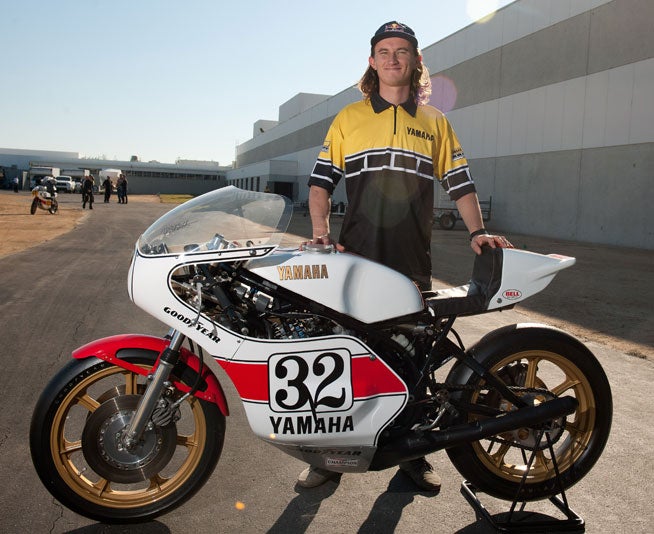
Jake Gagne may road race for a living, but he’s a motocrosser at heart with a desire to be recognized as an all-around talent like Malcolm Smith or Dick Mann.
Factory Yamaha road racer Jake Gagne loves road racing, but he lives motocross.
The likeable 22-year-old San Diego, Californian, who splits his life between two wheels and a surfboard, is the 2015 MotoAmerica AMA/FIM Superstock road racing champion, and while he will be the first to admit that he loves the sport and all of the privilege it has afforded him, like most of us, Gagne’s motorcycling passions are rooted in dirtbikes. Starting out as a motocrosser when he was a kid, Gagne dreamed of the day when he would follow in the footsteps of his heroes, Jeremy McGrath and Ricky Carmichael, and score a big factory contract to contest the Monster Energy AMA Supercross Series and the Lucas Oil Pro Motocross Championship. Instead, his life took an unexpected, sweeping turn onto the pavement.
But, to paraphrase that classic line, “While you can take the boy out of the dirt, you can’t take the dirt out of the boy.” Gagne had always longed to race professional motocross, and in 2015, he finally got a taste of that dream in 2015 when he competed at the Toeele, Utah, round of the Lucas Oil Pro Motocross Championship. Pit-side pundits scoffed at the revelation that a “road racer” could be competitive in the rough-and-tumble moto world, but Gagne not only survived the experience, he gave a good accounting of himself by qualifying right in the middle of the field and finishing just outside the top 20 in his first major race on a 450cc motocross bike.
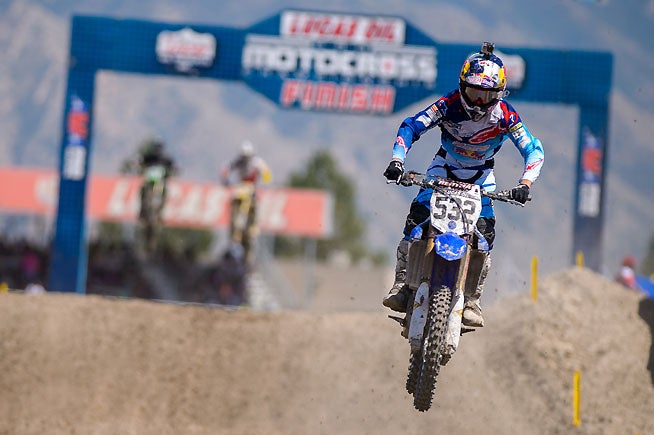
Gagne’s performance wasn’t a fluke, and it speaks not only to his tremendous talent but his innate desire to be recognized as one of America’s top all-around motorcycle racers. HE wants to—and he believes he can—be competitive with the best racers in each discipline. In a sport that his so highly specialized, Gagne is a proverbial breath of fresh air.
You backed up your 2014 AMA Supersport title with the most 1000cc Superstock of any rider during the inaugural MotoAmerica season, and to top it off you easily qualified for a round of the Lucas Oil Pro Motocross Championship and did surprisingly well in the first moto. That’s old-school Malcolm Smith, Dick Mann-type stuff. Is that the way you like to model yourself?
Yeah. I think that if you’re going to be a professional motorcycle racer you should be able to ride any kind of motorcycle well. I grew up racing motocross. I started racing motocross when I was 5 years old, and until I was 14 that’s all I did. Me and my dad raced motocross together, and that’s what I thought I was going to do. My heroes were Jeremy McGrath. Growing up, I watched him dominate supercross. I loved watching Ricky Carmichael, too.
So, that was always the dream, to make it in supercross and motocross one day, but then you could say things took a turn.
Yeah, when I was 14. We’d heard about the Red Bull Rookie Cup program—I was riding for KTM at the time—and my dad signed me up. We just said, “Hey, we’ll sign up and see what happens,” and I ended up getting picked for a tryout. They took about 150 kids back to Alabama. We rode for two days, and we made it through when they cut that down to 40.
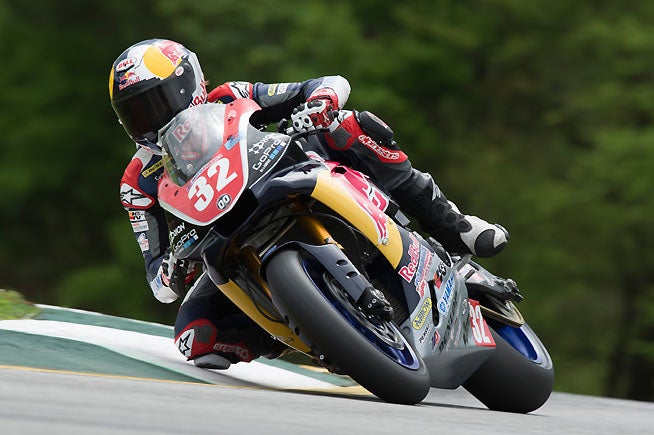
So you made the cut. What was that like?
It was actually nerve-wracking. I’d never ridden I rode race bike in my life, so I had no idea what I was doing. I remember that through the whole tryout I only dragged a knee, like, one time. [laughs] I had this one little scuff on one of my knee pucks. I was probably the slowest guy that they picked, so they must have seen something. It’s just crazy how it all worked out. They picked me, so we just figured we would give up motocross for a year and try this road racing thing, and if it didn’t work out, we would just go back to motocross.
It must have worked out.
Yes, it did. You know, with Red Bull and KTM, that was a huge opportunity. Not a lot of kids ever get to jump into road racing without having to buy bikes and pay for travel. It was just a really cool program that they had. It’s why I’m in road racing today.
And then you had a monster year. Did you expect to be so dominant?
I could say that I didn’t expect it, but I kinda did. I knew that I wanted to win, and I honestly felt that we could win every race. Obviously, things don’t always go perfect, and I made some mistakes. It wasn’t a breeze, though. We worked our butts off every single race, and I rode the thing as hard as I could every single time I was on it. The bike was working well, and our team was working well. I have some of the best guys on my team, and the best crew chief. It was definitely the highlight of my year to win the championship… Well… Doing the [Lucas Oil Pro Motocross] National was probably even more of a highlight just because that is something I don’t get to do every day. That was the original dream, and I was fortunate to be able to make it happen.
That’s what we really want to know about. How did that deal happen?
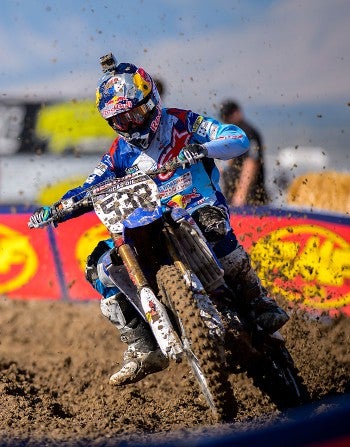
What were your expectations, going into that race?
I remember doing some interviews right before it, and people asked me where I thought I would be. I told them that if I could keep it on two wheels I should be able to get close to the top 20. They were like, “No way. You’re crazy. Just try to qualify.” But I figured that I knew what I could do, and I just went there and did my own thing.
And you did qualify, right about where you said you would.
Yeah, in the first practice I ended up right around 22nd, somewhere around there. That was actually kind of surprising to me because I didn’t feel like I was riding all that well, and the track was gnarly. But I made the National and ended up finishing 22nd in the first moto.
But that was all she wrote…
Yeah. I’d had a pretty big crash in Indy the week before, and I was pretty sore, and then I jammed my leg in a rut in the first moto, so I just decided to sit out the second moto.
I’m betting you’d like another shot at it.
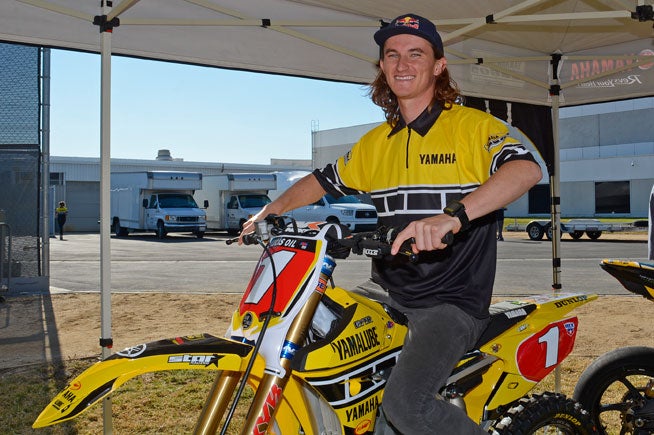
Definitely. I want to take a look at the schedules for next year and see if we can work it out because I want to get out there.
Well, if you destroy the Superstock class again in 2016, it’s not likely that “Uncle Keith” will say no. In fact, you just recently raced a pretty cool dirt track, the Superprestigio of the Americas. What was that like, and would you consider doing a half-mile or mile dirt track race if you had that opportunity as well?
For sure, that [Superprestigio] race was cool. Danny Walker does American Supercamps, and I have done a lot of those, worked as a guest instructor and helped out as much as I can. Now I think I’d love to do a real Grand National Championship race. That’s the thing, I think, is that a lot of professional motorcycle racers should learn other disciplines because even though they are totally different in terms of body positioning and other things, there are a lot of techniques and skills that you can learn and combine. That’s just what I think, but then I just love racing motorcycles. It doesn’t even matter what discipline it is, even if it’s a pitbike in someone’s backyard.
Any interest in GNCC or other forms of off-road racing?
Heck yeah, if I get the opportunity. If it has two wheels and a motor, I’ll race it.
 Your Privacy Choices
Your Privacy Choices